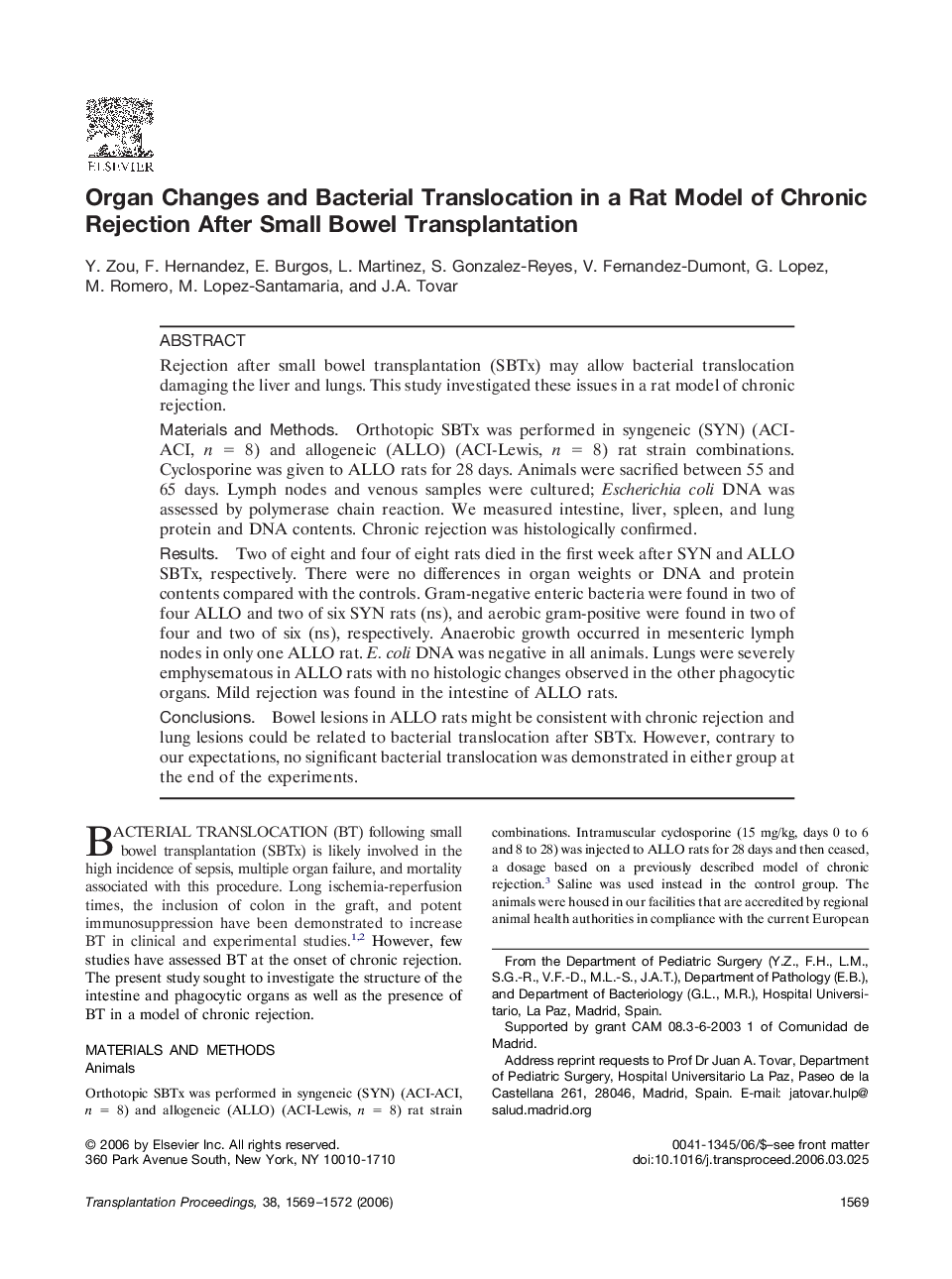| Article ID | Journal | Published Year | Pages | File Type |
|---|---|---|---|---|
| 4263492 | Transplantation Proceedings | 2006 | 4 Pages |
Rejection after small bowel transplantation (SBTx) may allow bacterial translocation damaging the liver and lungs. This study investigated these issues in a rat model of chronic rejection.Materials and MethodsOrthotopic SBTx was performed in syngeneic (SYN) (ACI-ACI, n = 8) and allogeneic (ALLO) (ACI-Lewis, n = 8) rat strain combinations. Cyclosporine was given to ALLO rats for 28 days. Animals were sacrified between 55 and 65 days. Lymph nodes and venous samples were cultured; Escherichia coli DNA was assessed by polymerase chain reaction. We measured intestine, liver, spleen, and lung protein and DNA contents. Chronic rejection was histologically confirmed.ResultsTwo of eight and four of eight rats died in the first week after SYN and ALLO SBTx, respectively. There were no differences in organ weights or DNA and protein contents compared with the controls. Gram-negative enteric bacteria were found in two of four ALLO and two of six SYN rats (ns), and aerobic gram-positive were found in two of four and two of six (ns), respectively. Anaerobic growth occurred in mesenteric lymph nodes in only one ALLO rat. E. coli DNA was negative in all animals. Lungs were severely emphysematous in ALLO rats with no histologic changes observed in the other phagocytic organs. Mild rejection was found in the intestine of ALLO rats.ConclusionsBowel lesions in ALLO rats might be consistent with chronic rejection and lung lesions could be related to bacterial translocation after SBTx. However, contrary to our expectations, no significant bacterial translocation was demonstrated in either group at the end of the experiments.
